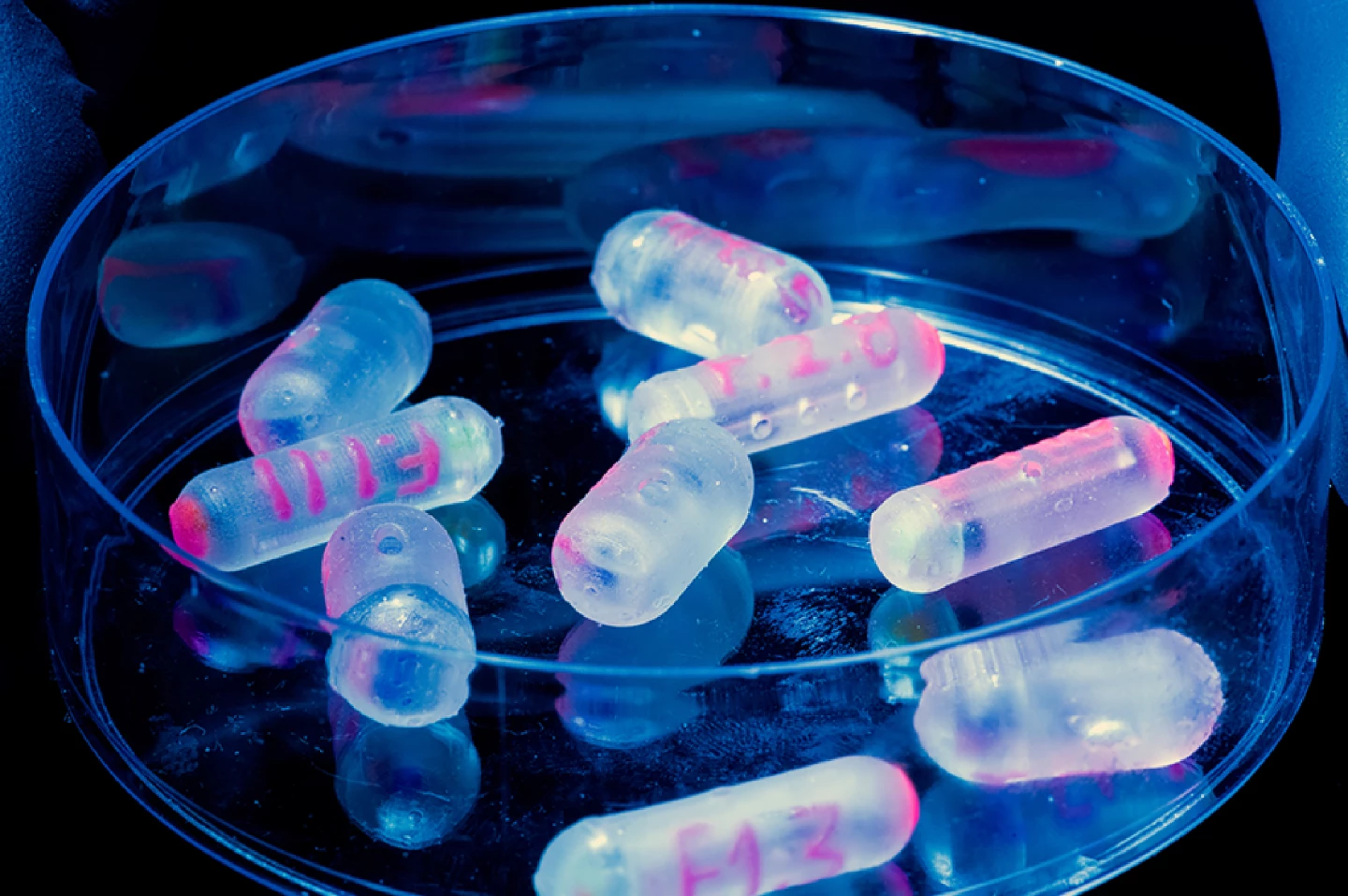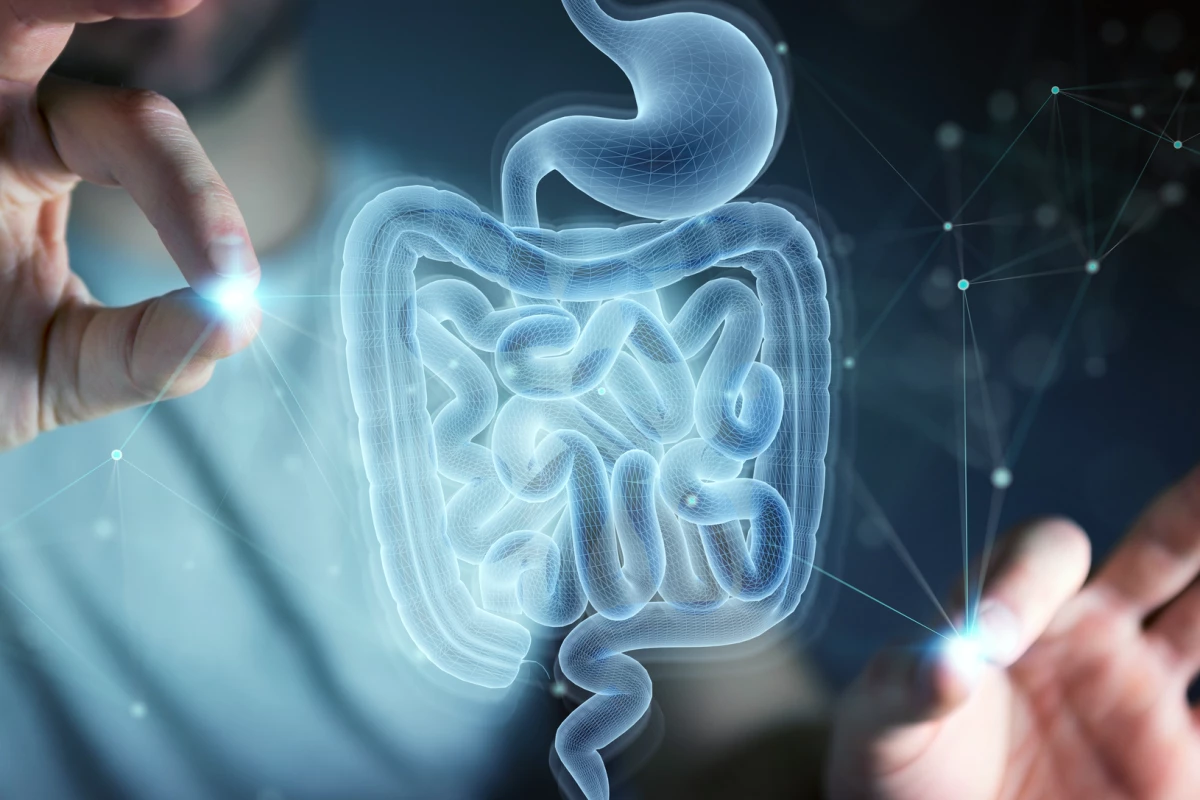Research continues to highlight the important role that the gut microbiome plays in maintaining health, both physical and mental. However, the primary method currently used to assess the microbiome – analysis of DNA and metabolites found in a fecal sample – only provides information about what gut bugs are in our waste and doesn’t fully capture what’s going on ‘upstream.’
Tufts University School of Engineering researchers have addressed this issue by developing an ingestible device about the size of a vitamin pill that takes a comprehensive inventory of microorganisms as it travels through the gut.
The 3D-printed pill comprises a soft, elastic exterior with pH-sensitive inlet ports that open in response to changes in acidity so that once it’s passed through the stomach and into the small intestine, the pill begins collecting microbiome samples. Bacteria are pulled in through the inlets under osmosis. As samples are collected, polyacrylate beads swell, eventually blocking and closing off the inlets. The pill is eventually pooped out.

The current iteration is an upgrade of a previous version the Tufts Nano Lab team developed. The old pill’s hard shell has been replaced by a softer one to make it easier to swallow. And the researchers have significantly improved control over the pill’s ability to collect localized microbiome samples in the small intestine.
The previous pill’s performance was evaluated in preclinical tests on pigs and primates. In a study published in 2019 in Advanced Intelligent Systems, the researchers reported that the bacterial populations sampled by the pill closely resembled the populations of the environment to which the pill was exposed, including regions of the gut upstream from the colon or large intestine.
“[I]t is believed that such lab-on-a-pill devices revolutionize the understanding of the spatial diversity of the gut microbiome and its response to medical conditions and treatments,” the researchers said in the published study.
The demonstrated preclinical success with the sampling pill has paved the way for human clinical trials, which the researchers say are “upcoming.” Having a detailed list of gut bacteria has the potential to advance our understanding of a wide range of health conditions and could be used as a diagnostic tool, enabling the tweaking of the microbiome to treat those conditions.






